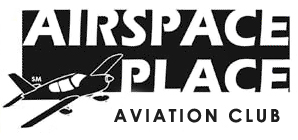Questions and Answers
Q. What am I buying? Is it a condo?
You are buying a hangar-it is similar to a condominium, but because it is on airport property it is a unit in a Cooperative.
Q. How long is the lease? The lease is up to 90 years, making this an excellent long-term investment. The lease is broken into (3) 30-year terms with renewal options at the favor of the hangar owners.
Q. What if the airport would close? What happens to my investment? Highly doubtful considering the FAA investment and both AKR and DLZ city’s recent upgrades and interest in expanding operations as a beneficial economic tool. However, as a protection for hangar owners, in the highly remote and unlikely event the airport would close, as part of our ground lease, the City agrees to repurchase your hangar at the fair market value as if the airport would continue to operate.
Q. What happens if I lose my medical and can’t fly? What do I do with my hangar? It is your hangar to rent or sell. A deluxe loaded hangar at a quality airport is much easier to market than a plain old hangar at a lower quality airport.
Q. Can I do anything else with my hangar other than store an airplane? In addition to storing your airplane, you may also use your hangar for other customary uses such as for your classic car or small boat. If you consider what you pay in seasonal storage for that classic car, owning a hangar and having no additional storage cost is another benefit. Plus it’s cool to look at whenever you are there in winter.
Q. What is in the proprietary lease and hangar corporation bylaws? These documents are designed to protect all parties and insure the value and usage of the hangar building is to everyone’s present and future best interest. It addresses issues such as utilities, permitted uses of the building, safety, and security etc. and establishes guidelines to determine fair payment for the common items such as the telephone line, water, electric, maintenance, etc.
Q. What other costs are there after I purchase? Each hangar is individually metered for electricity and gas. You set up your own account and pay your own utility bills. A monthly “co-op fee” is billed quarterly, and this pays for outside lighting, water, insurance on the building, real estate taxes. Typically your aircraft insurance would cover the plane and your homeowners would cover other contents in your hangar.
